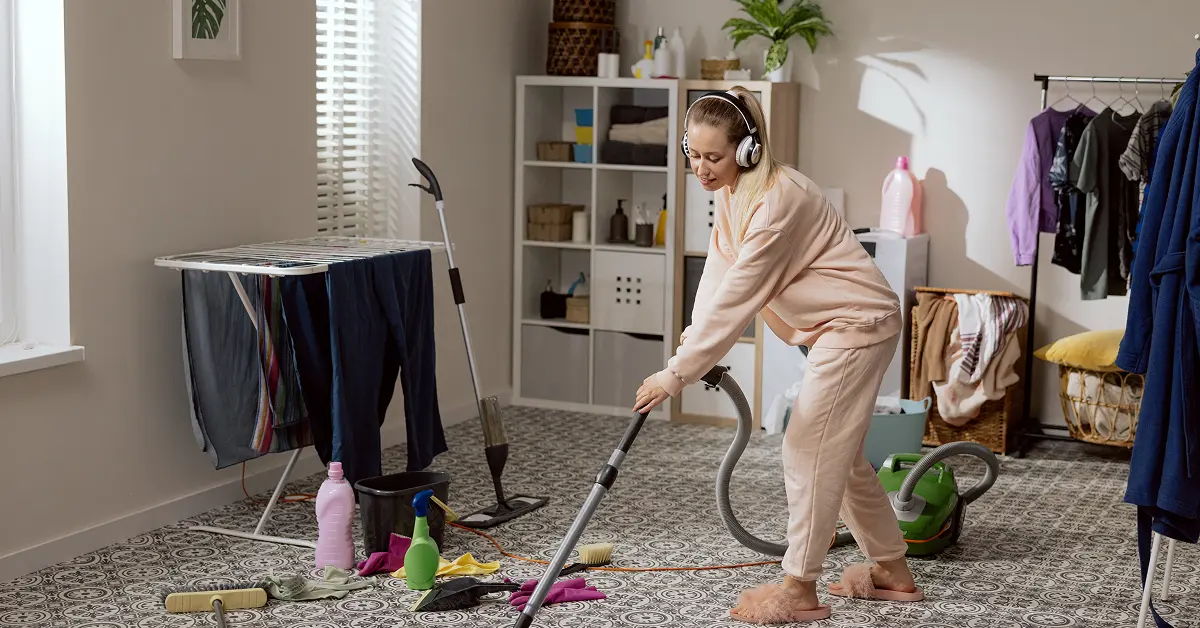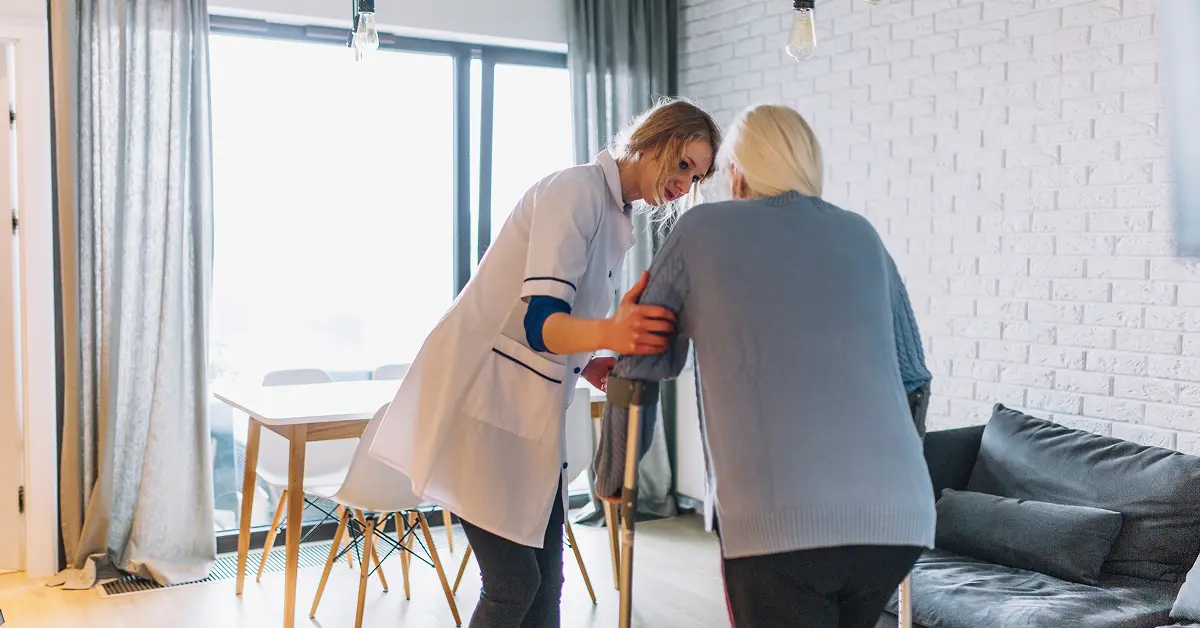Clean floors are more than just visually pleasing—they’re essential for a hygienic, healthy living environment, especially in Indian households where dust, spills, and footwear carry in a mix of germs and grime. Creating a daily floor cleaning routine can help prevent infections, allergies, and pest infestations while maintaining a fresh and comfortable atmosphere in your home.
In this blog post, we’ll explore why floor hygiene is so important, how to set up a daily routine that fits your lifestyle, and what tools and cleaning agents work best in Indian conditions.
Why Floor Hygiene Matters in Indian Homes
India’s climate, population density, and cultural practices (like walking barefoot indoors) make floor cleanliness a top priority. Whether you live in a metro apartment or a rural home, floors tend to accumulate:
- Dust and sand, especially during dry months
- Food crumbs and oil spills from cooking
- Pet fur or dander
- Footwear-borne dirt and bacteria
- Insect droppings or outdoor contaminants
Ignoring these not only affects cleanliness but can also lead to skin infections, asthma, allergies, and even fungal issues—especially among children and elderly family members.
Benefits of a Daily Floor Cleaning Routine
- Health & Safety: Eliminates germs, reduces risk of infections and improves respiratory health.
- Aesthetics: Maintains the shine and freshness of tiles, marble, or wooden flooring.
- Prevents Pests: Discourages cockroaches, ants, and rodents.
- Longer Floor Life: Regular care avoids stains, damage, and reduces repair costs.
- Stress Reduction: A clean home contributes to peace of mind and mental clarity.
Step-by-Step Guide to Build a Daily Cleaning Routine
Set a Time Slot
Pick a consistent time for floor cleaning. Mornings are ideal as they set the tone for the day. In high-traffic homes, an additional evening mop helps manage dust and spills.
Declutter First
Before sweeping or mopping, clear toys, clothes, bags, or kitchen waste off the floor. This makes the cleaning process smoother and more efficient.
Dry Sweep or Vacuum
Use a broom or vacuum cleaner to remove surface dust, hair, and crumbs. For Indian homes:
- Soft grass brooms (phool jhadu) are effective on marble or tile.
- Vacuum cleaners are great for rugs and tight corners.
Do this in every room—bedroom, kitchen, living area, and especially under furniture.
Wet Mop with Disinfectant
Use a microfiber mop or traditional cotton mop with a bucket of water mixed with a mild floor cleaner. For Indian conditions:
- Lizol, Domex, or natural options like vinegar and lemon are common.
- In monsoon season, add a capful of phenyl or Dettol for extra germ protection.
Change the mop water after every 2-3 rooms to avoid spreading dirt.
Pay Attention to High-Touch Zones
Don't forget:
- Entryways where shoes bring in germs
- Under dining tables where food falls
- Bathroom and kitchen floors which tend to be slippery and germ-prone
Weekly Add-Ons to Your Routine
- Move furniture to clean underneath
- Wash mop heads or broom bristles
- Use a floor polish or vinegar rinse to shine stone or tile floors
- Deep clean rugs or doormats
Eco-Friendly & Natural Floor Cleaning Tips
- Neem leaves water: Antibacterial and great for mopping.
- Lemon + salt: Works for sticky kitchen spills.
- White vinegar + essential oil: Safe for marble, tiles, and smells fresh.
- Baking soda paste: Excellent for stubborn stains or grease.
These are safe for pets and children and cost-effective too.
Room-by-Room Cleaning Advice
Kitchen
- Mop twice daily if needed—after breakfast and dinner.
- Use degreasers for oily spills.
- Clean corners near the gas stove and sink.
Living Room
- Remove rugs while cleaning.
- Dust under sofas and furniture legs.
- Use lavender or lemon-scented mopping liquids for freshness.
Bathrooms
- Use antibacterial cleaner daily.
- Pay attention to joints between tiles and drains.
- Always dry mop afterward to avoid slippery floors.
Bedrooms
- Mop once daily; more if you have pets.
- Vacuum under beds weekly.
- Avoid wet floors near charging cables or wooden furniture.
Tools You’ll Need for an Effective Routine
- Good quality broom (grass or plastic)
- Microfiber mop or flat mop with squeeze function
- Bucket with wringer
- Disinfectant cleaner (chemical or herbal)
- Scrub pad or toothbrush for tile corners
- Vacuum cleaner (optional but helpful)
Tips for Busy Professionals or Elders
- Hire part-time help: Daily sweep and mop services are affordable in India.
- Use robot vacuum mops: Increasingly popular in urban homes.
- Set reminders on your phone or use cleaning schedule apps.
- Divide the load: Involve family members or create room-wise assignments.
Conclusion
A clean floor is the foundation of a clean home. In India’s dynamic living environments, regular cleaning is not just a chore—it’s a hygiene necessity. With a little planning and the right tools, creating a daily floor cleaning routine becomes easy and even enjoyable. Whether you’re managing a nuclear family in a flat or an extended family in a bungalow, consistency is key.
Start small, stay committed, and enjoy the benefits of a sparkling, healthy floor every day.
Looking for more home hygiene tips?
Subscribe to our blog for weekly posts on home care, health, and smart living.
Contents
- Why Floor Hygiene Matters in Indian Homes
- Benefits of a Daily Floor Cleaning Routine
- Step-by-Step Guide to Build a Daily Cleaning Routine
- Weekly Add-Ons to Your Routine
- Eco-Friendly & Natural Floor Cleaning Tips
- Room-by-Room Cleaning Advice
- Tools You’ll Need for an Effective Routine
- Tips for Busy Professionals or Elders
- Conclusion
Our 24*7 services
Latest Posts
- What Is Respite Care and Why Is It Important
- Affordable home care for senior citizens in India
- Caring for Seniors with Dementia or Alzheimer's at Home
- Senior Caregiving A Guide for Every Family
- How to Write a Caregiver Resume That Gets You Hired
- How Care After Hospital Discharge Speeds Up Recovery at Home
- How to Get Home Health Care for Seniors Through Medicare
- What Does a Senior Citizen Caregiver Really Do at Home
- How to Care for Elderly Parents with Alzheimer’s or Dementia
- How to Get 24-Hour Care for Seniors at Home



